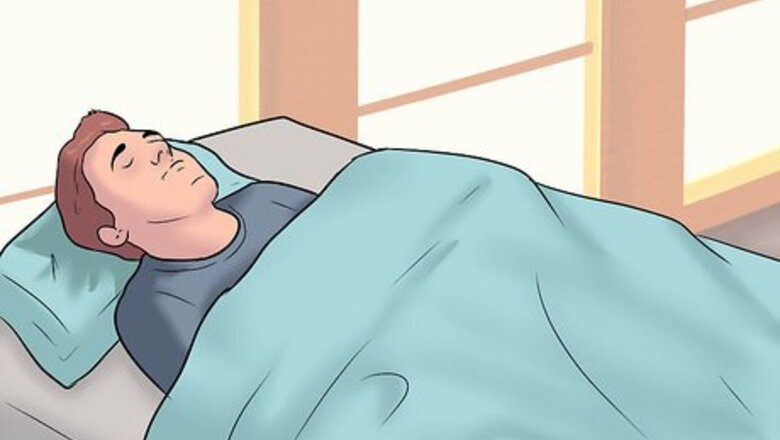
views
Making Yourself Comfortable
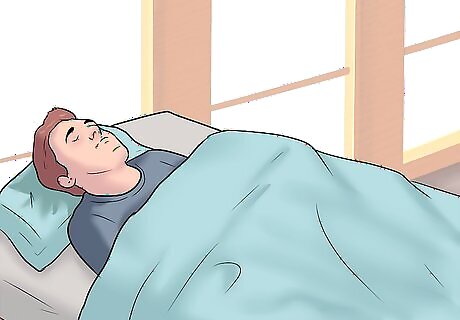
Pick the most comfortable position for you. You may find that sleeping upright is the most comfortable position when you have injured ribs, or you may find it more comfortable to sleep on your unaffected side. Both of these sleep positions are okay to use when you have broken ribs. Sleeping on your unaffected side will also help to make breathing easier. Try out different positions to find the most comfortable position for you. Try sleeping on the injured side. If your broken ribs are only on one side, some physicians recommend that you sleep on the injured side because it restricts the movement of your injured ribs and allows you to breathe more deeply on your uninjured side. However, if this position is painful for you, then do not try to sleep on your injured side. Try sleeping in a recliner. Medical professionals recommend that people with broken ribs sleep on an incline for a few days after the injury.
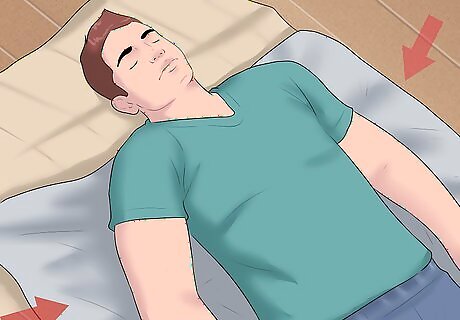
Use pillows to increase your comfort. Pillows and cushions can help to prevent you from rolling over in the night, which can be painful and may even cause you to wake up in the night. If you are sleeping on your back, then try placing a pillow under each of your arms to keep you from rolling onto your sides. You can also place a couple of pillows under your knees to reduce some of the strain on your back.
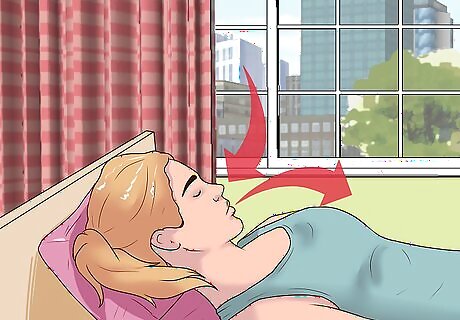
Practice deep breathing. Broken ribs may cause you to take shallow breaths due to the pain associated with moving your chest too much. For this reason, it is a good idea to do 10 deep breaths each hour. Practicing deep breathing can help you to relax and it will also ensure that you are getting plenty of oxygen. To practice deep breathing, lie on your back or recline in a chair and slowly take in a deep breath. Try counting to five as you inhale through your nose and then slowly exhale from your mouth as you count down from five. As you breathe, try to pull the air down into your belly with your diaphragm.
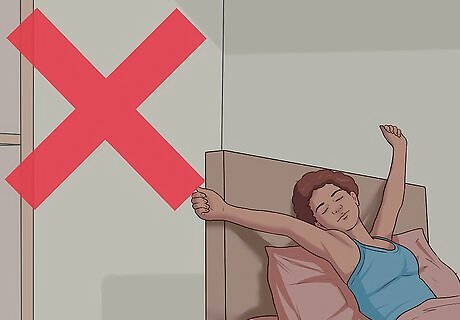
Limit your movement while you sleep. During the first few days, you will need to limit coughing, twisting, turning, and stretching. This might be harder to remember or control at night. Just try to keep in mind that your ribs are connected to many parts of your upper body, so movement can increase your pain. Try keeping an extra pillow handy so that you can brace it against your ribs when you need to cough during the night. Avoid wrapping your ribs to minimize movement. Wrapping your ribs increases your risk of collapsed lungs and lung infections.
Reducing Pain While You Sleep
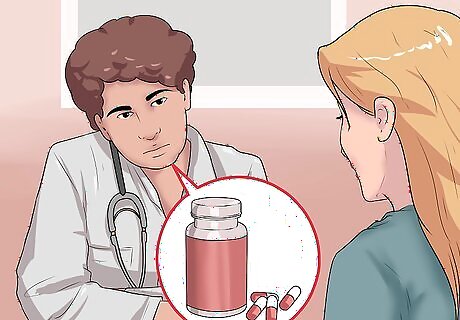
Take pain medications as directed by your physician. If your doctor has prescribed pain medications for you, then taking your medication about 30 minutes at the time that they recommend. Make sure that you follow your doctor’s instructions for how to use your medication and ask your doctor as soon as possible if you have any questions or problems. Keep in mind that some pain medications may make it hard to stay asleep because they can cause sleep apnea. For example, opioid medications such as methadone can cause you to stop breathing and wake you up in the night.
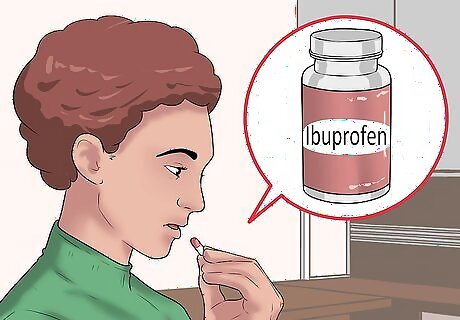
Try over-the-counter pain relievers. You can use over-the-counter pain relievers such as ibuprofen, naproxen, or acetaminophen. If you do not have prescription pain medicine for your broken ribs, then you can take an over-the-counter pain medicine. Check with your physician for a specific recommendation of what or how much to take. Do not take more than the recommended dosage. If you have or have had heart disease, high blood pressure, kidney disease, liver disease, stomach ulcers, or internal bleeding, ask your physician to see if you can safely take one of these medications.
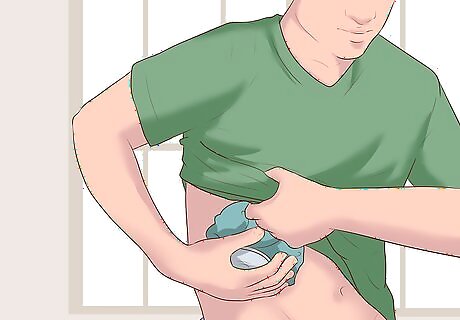
Apply ice to your ribs. Ice will help to numb the pain a bit and it may also help to reduce the swelling. During the first two days after your injury, you may benefit from using a covered or wrapped ice pack for about 20 minutes every hour. After the first couple of days, you can use the ice pack for 10 to 20 minutes 3 times per day. Try applying an ice pack just before you go to bed to help with the pain. Avoid using heat on broken bones, especially if there is swelling. Heat increases blood flow to the area of application, which can make swelling worse.
Facilitating Healing
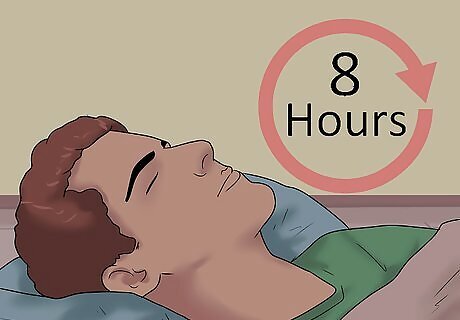
Sleep as much as possible. Sleep is essential for your body’s healing processes, so make sure that you are getting lots of rest. You should try to sleep for at least 8 hours every night and nap during the day if you feel tired. Some good ways to make it easier to fall asleep include: Going to sleep at the same time every night Turning off all TVs, computers, tablets, and phones Making sure that your bedroom is dark, cool, and quiet Avoid drinking caffeine or alcohol before you go to bed Do not eat at least two hours before bed Doing something relaxing before bed, such as listening to soothing music or taking a shower
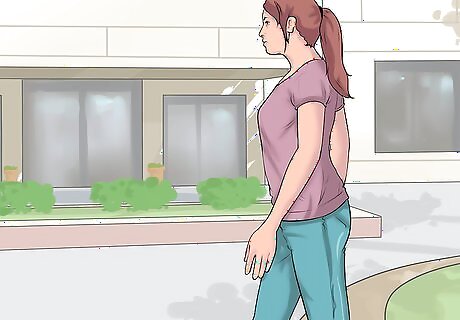
Move now and then during the day. Staying in bed all day is not a good idea when you have broken ribs. During the day, you should get up and walk around now and then. This will help you to get more oxygen and clear mucus from your lungs as well. Try to get up and walk around your home for a few minutes at least once every two hours.
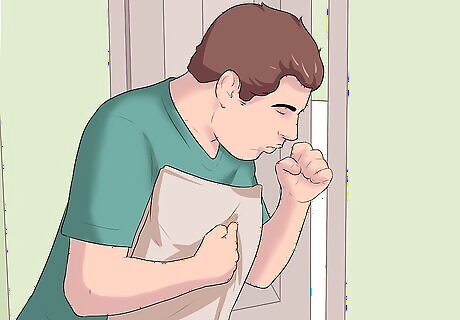
Cough if you need to cough. Not coughing when you need to cough can lead to a lung infection. Coughing might be painful when you have broken ribs, but it is important to do it anyways. Hold a blanket or pillow against your chest as you cough to help make it a little less painful.
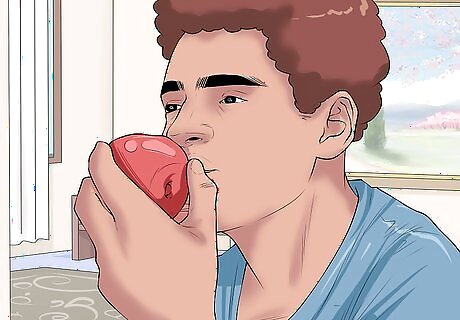
Eat healthy foods. Getting adequate nutrition is also essential to your body’s healing process. Make sure that you are getting a balanced diet as you recover. Your diet should include: Fruits, such as apples, oranges, grapes, and bananas Vegetables, such as broccoli, peppers, spinach, and carrots Lean protein, such as skinless chicken, lean ground beef, and shrimp Dairy products, such as yogurt, milk, and cheese Complex carbohydrates, such as brown rice, whole wheat pasta, and whole grain bread
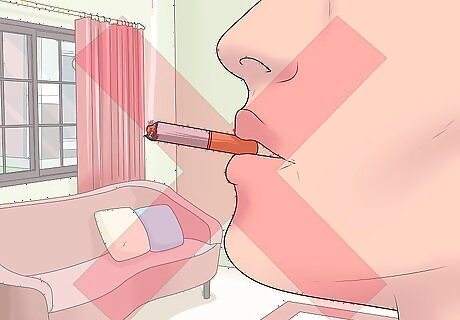
Quit smoking. Quitting smoking may help to speed up your recovery as well. If you are a smoker, then now is a great time to stop. Talk to your doctor about medications and smoking cessation programs that may make it easier for you to quit.

















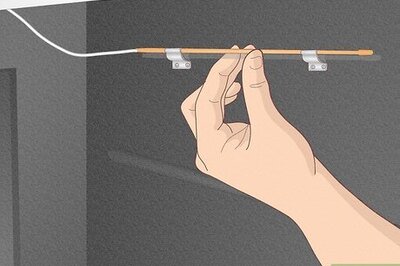


Comments
0 comment